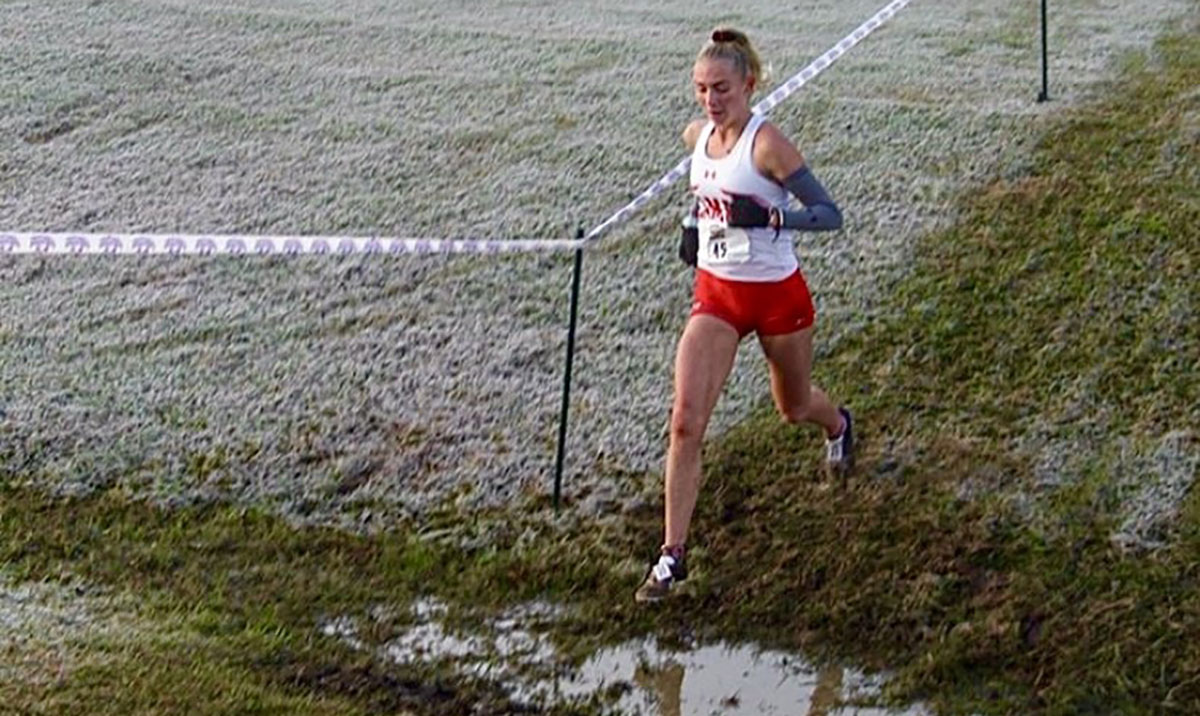
Canceled leagues, tourneys force LU student athletes to examine career options
With the coronavirus pandemic hitting the United States in March, the NCAA made a decision, March 14, to cancel all remaining competition and practices. This included all spring conferences and post season championships.
This decision by the NCAA to cancel all athletic activity caught athletes off guard, whether they were in season or not.
“The news about the season being canceled was told to us in a sudden team meeting on March 11,” Jorge Gutierrez, a redshirt pitcher on the Lamar baseball team, said. “It came by surprise, but this was much bigger than sports.”
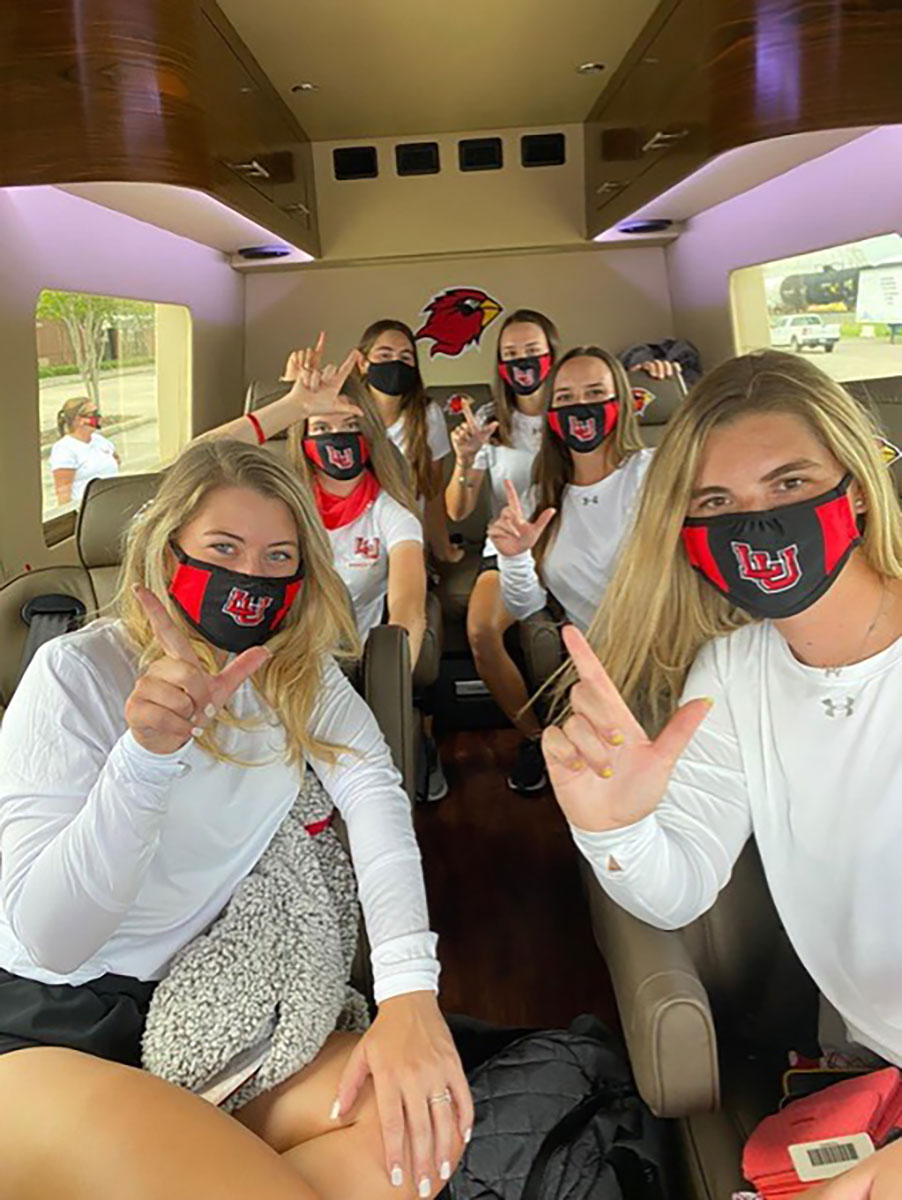
Whether the student-athletes were at school, at practice or in the middle of competition, everything came to an abrupt halt. Junior golfer Alessia Trebbi-Tindall was playing around at the Beaumont Country Club when the news broke.
“We were playing in our qualifying round for the HBU tournament — we had no idea that that previous swing was going to be our last for the season,” she said.
Following the NCAA’s call, one by one, individual universities quickly sent student athletes home. Gutierrez said the athletes were unaware of how their future was going to be impacted, but understood the decision.
“Yeah, this sucks,” he said. “Sports will come at a later time — it’s all about safety.”
Lamar University, officially moved classes online on March 23.
After six long months, the fall semester and season finally rolled around. It was time for athletes to report back to Lamar and get to the fields, courts and courses, although some, like senior baseball pitcher Brennen Smith, were concerned that they would return just to get sent back home.
“I was in high hopes to come back to play,” he said. “Most of our team have all been playing ball over the summer so it made it seem like playing in the fall was to be expected. It never really seemed like canceling the fall would happen until we returned to campus and heard about all the cases.”

Although some athletes had opportunities to at least practice over the summer, others did not and were skeptical about the possibilities for fall.
“Even though golf is such a social distanced sport, most of us were not allowed to play or practice due to state and country regulations,” Tindall said. “I had not picked up a club since our last practice, and I was nervous with how we would all bounce back from a lack of practice. In all honesty though, playing this fall looked skeptical until we had our schedules in our hands.”
Although many of Lamar’s athletes returned, there were a handful who did not. In response to athletes and family concerns with COVID-19, the NCAA passed an “opt-out” form which allowed athletes to sit out for the year without losing scholarship. It also meant that schools did not lose academic progress rate points, which affects eligibility and retention.
Mya Taylor, a junior from England, who was scheduled to run cross country this fall, was one of the student athletes who opted out.
“I’m thankful I’ve had the opportunity at Lamar to run, although I did not return,” she said. “To me, it made no sense to travel somewhere I had to pay a lot of money for healthcare, when back in England we have it for free. I have a lot of underlying issues so it made more sense to stay home and where I would be with family, especially if something were to happen.”
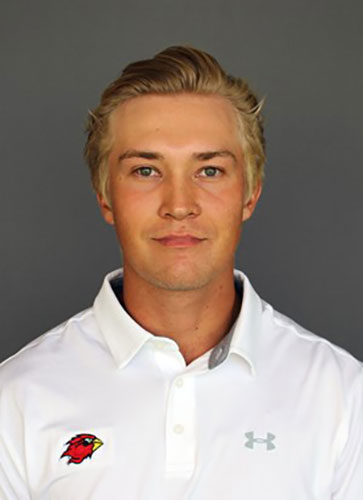
Those who did return to Lamar face ongoing challenges with COVID-19 guidelines from Lamar, the NCAA and their respective sport. Senior golfer Juho Kurikka said he has had to adapt to a new routine.
“Going to school amongst a pandemic is very mundane,” he said. “I’ve had to change a lot for things I do. The new normal is now wearing a mask, entering and exiting through certain doors, and limiting face-to-face interactions. Weights, class and practice have all changed immensely.”
Every sport has designated lifting times in order to keep a flow and reduce congestion in the weight room. However, due to the pandemic, the style of lifts has changed.
“Wearing a mask is a must and that has been a big, yet minor adjustment,” Smith said. “(The mask) is worn the whole lift, except for running. There’s been added sanitizing protocols when switching between partners inside the weight room, and the biggest adjustment is a reduced time frame.”
The types of lifts vary among the sports to target different muscles and movements. Thanks to COVID-19, athletes have had to change what they can do.
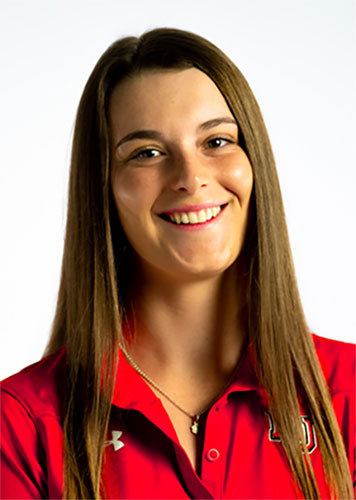
“There’s been a huge change from this year’s lifts to last year’s,” Tindall said. “We are so used to back-squatting and using dumbbells, but we are not allowed to use half of the equipment to reduce common touch points. It stinks, but the trainers have gotten very creative and done a good job adapting for us and with us.”
There have been multiple coronavirus cases across the athletic department, and when one person on a team is down, it affects everyone else.
“I had teammates who caught COVID and they were my roommates,” Smith said. “I’m sure a lot of athletes can relate to this. I had to go into a mandatory 14-day quarantine. It was very boring. I enjoy being outside, so being stuck inside gave me cabin fever. It was really difficult.”
Athletes are students as well, and COVID-19 has impacted education, with many athletes being switched to online or hybrid classes
“Learning from my computer is the new normal,” Smith said. “I prefer my classes to be in person so I can ask more questions. It is also a better learning environment. Having a spot at home where it is quiet is easy to find, but I lean more for my bed, which opens a door for numerous distractions.”
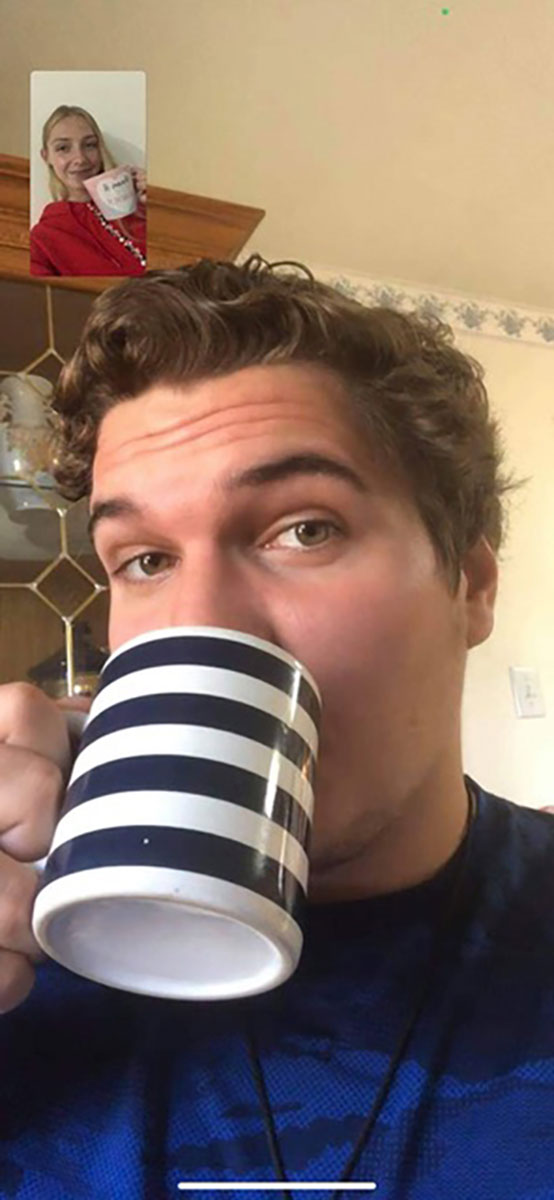
Athletes spend a lot of time practicing, competing and attending to their daily schedules. In their rare time off, COVID-19 has put a wrench into their social lives.
“I have had to limit my social gatherings,” Kurikka said. “I can’t just freely go out with whoever I want, because I have to be cautious to refrain from catching COVID.”
Private relationships have been challenged by the pandemic as well. Taylor said she has missed being with her boyfriend who is on the Cardinal football team.
“My boyfriend lives in the States and I’m in England,” she said. “He supports me and my choice to stay here, but I do not get to see him like I wish. We can’t just travel, so we have to try and do lunch and dinner dates via zoom.”
On March 26, the NCAA officially granted all spring athletes an extra year of eligibility, followed by another announcement in August which added fall athletes.
Tindall said she would love to play another year.
“This is an amazing opportunity and I’m still young so why not?” she said. “Five years instead of four to keep playing the game I love at the highest level — sign me up.”
While Tindall is looking forward to an extra year of eligibility, athletes like Wallis are ready to move on.
“I’m not considering it,” he said. “I’ve had my time and when my senior year wraps up, I’m going to want to start my life, job, family, etc.”
The NCAA will leave it up to each school to decide whether to grant financial aid to returning players, as well as the choice to expand roster sizes to account for incoming recruits and returners.
Torn between wrapping up collegiate careers or making one last run, athletes have to weigh the options of playing.
“I do not know if I plan to get my graduate degree,” Kurikka said. “If I do, there is a good chance I will try to take my COVID year. There’s no downside to playing.”
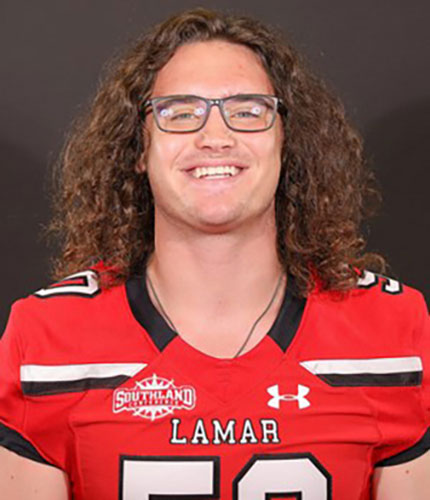
Taylor said she has the opportunity to run with the England Athletics Junior Talent Program, as she cannot compete for Lamar at the moment.
“But if the opportunity came again, I would not be opposed to the idea,” she said. “I’ll go wherever life takes me.”
Despite all the negatives COVID-19 presents, finding the little positives can make a bad situation good, Taylor said.
“Being positive helps make the time go by quicker and get me through all this craziness,” she said. “Sometimes, you just have to look harder to find them, but they are there.”
Wherever the athletes find themselves during the pandemic, they all share one goal — to return to competition.
